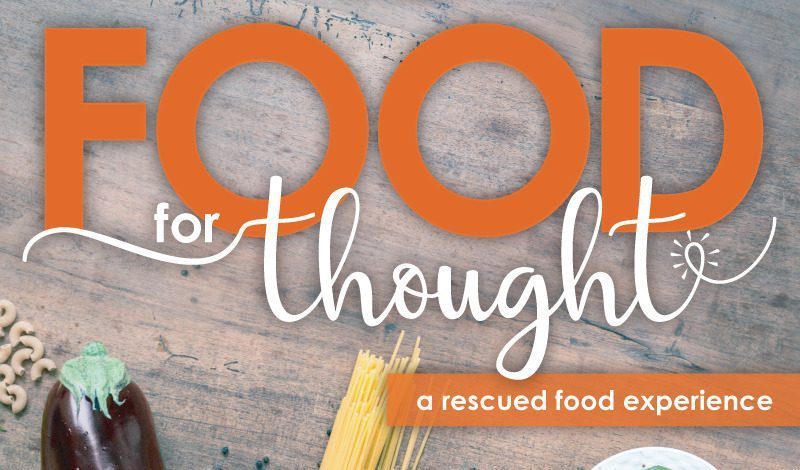Education Is Key to Creating Sustainable Food System
Creating a sustainable food system is a challenging issue, and awareness about it needs to start at a younger age, according to panelists at a recent Food for Thought discussion. The event was hosted by Saving Grace Perishable Food Rescue and Creighton University.
Panelists shared how they are learning about sustainability. “Four years ago, this was new to me,” said Brent Crampton of Hillside Solutions. “I thought food waste went into the landfill and it made dirt. That is not at all what happens.” Instead, the food waste produces methane gas. “One head of lettuce can take 25 years to decompose,” he added.
“When I reflect on myself 10 years ago to now, I’m completely different in my practices and what I believe,” said Kevin Newlin, who oversees Creighton’s special event catering and Harper Dining Hall. “I seek out opportunities as a chef to make it better.” As an example, he said athletes in Harper Dining Hall are eating more grains, legumes, and fresh fruits and vegetables. “Now they really like the fresh foods. We are finding that it is filling, and less is wasted.”
“People can be overwhelmed by the issue,” said Alex, a Creighton student leader who has a work study job in the Office of Sustainability Programs. She recommends starting small and having a desire to learn more.
Creighton Students Embrace Composting
Creighton started composting last year. Alex said it’s important to help students understand what can and can’t be composted, along with why they should care.
“I think about eating an apple versus a bag of chips,” Alex says. “An apple core goes into the compost. Chips are processed and have chemical ingredients we can’t even pronounce. Chips have a plastic wrapper left over that creates a lot of carbon emissions. It’s important to practice mindfulness in what we eat and where it comes from.”
Unused Food Wastes Resources
Beth Ostdiek Smith, founder and CEO of Saving Grace, said up to 40 percent of food that’s produced ends up in landfills. Throwing out food also wastes resources used to produce it, including time, water, electricity and transportation.
“Our food takes so much to grow and transport,” Newlin added. “Celery often gets chopped off at the top and bottom. That’s unnecessary and wasteful.”
Crampton said composting will be seen as just as important as recycling if the public becomes more aware of it. While industrial farm practices take from the soil, composting creates a nutrient-dense substance and adds to the soil, he said. “We need to get away from extracting practices and go back to more natural ways.”
Good Nutrition Important for Everyone
In addition to creating a more sustainable food system, it’s also important to address food justice. Alex said it’s critical to recognize the injustices in the accessibility of healthy foods and address them.
“Food should be a human right,” said Smith. “Healthy food needs to be distributed equitably and sustainably to everyone.”
Nick McCreary, Creighton’s director of sustainability and moderator of the panel discussion, encouraged participants to do something. “Don’t feel weighted down and overburdened by the issues.”


